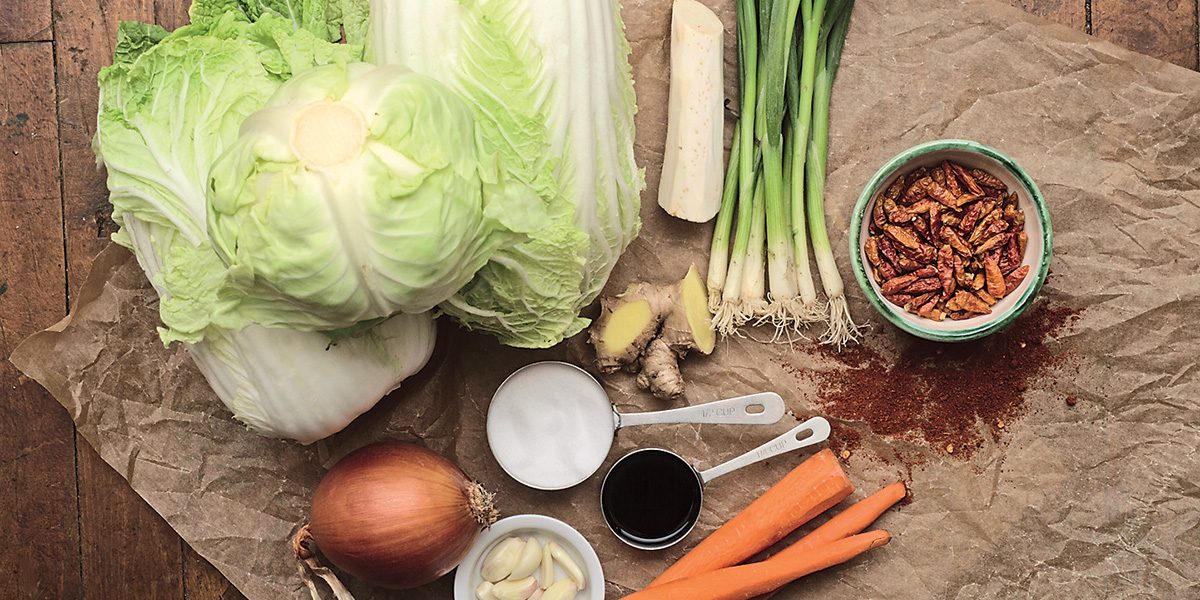Food & Drink
Ferment to Be
How “good bacteria” is good for your gut.
From food trucks to fine dining, fermented foods—like kimchi, sauerkraut, and miso—are appearing on menus around town. Not only do these foods pack bold flavors, they’re good for our bodies, as well.
“I’ve always liked the way miso tastes,” says Juliana Converse, a writer living in Baltimore. “When I realized it was probiotic, I tried to eat more of it because it’s good for the gut.”
Fermented foods like miso—a Japanese seasoning made from fermented soybeans—are rich in enzymes and acids, making it easier for organs to break down food and absorb nutrients.
“When you add sea salt to fresh produce [like cabbage], you wake up colonies of lactic-acid-loving bacteria, or lactobacillus,” says Meaghan Carpenter, co-owner of Belvedere Square Market’s Hex Ferments, which specializes in fermented foods. “That’s going to line your gut with billions of good guys that are going to help your gut break down the foods you eat.”
Good bacteria also help to keep inflammation and food sensitivities in check, according to nutritionist Kasia Kines of Holistic Nutrition Naturally in Baltimore. “They help provide energy for the colon, they crowd out pathogens, [and] might support a healthier weight and a stronger immune system,” says Kines.
The probiotic revolution is backed up by data, with science showing the strong interconnectivity of the gut to the rest of the body, according to Dr. Gerard Mullin, associate professor of medicine at The Johns Hopkins Hospital and author of the upcoming book The Gut Balance Revolution.
“The gut is kind of like what the brain was several years ago and what the heart was before it. It’s not as sexy, but it’s your inner being,” says Dr. Mullin. “Your gut—it’s the core of your health.”
